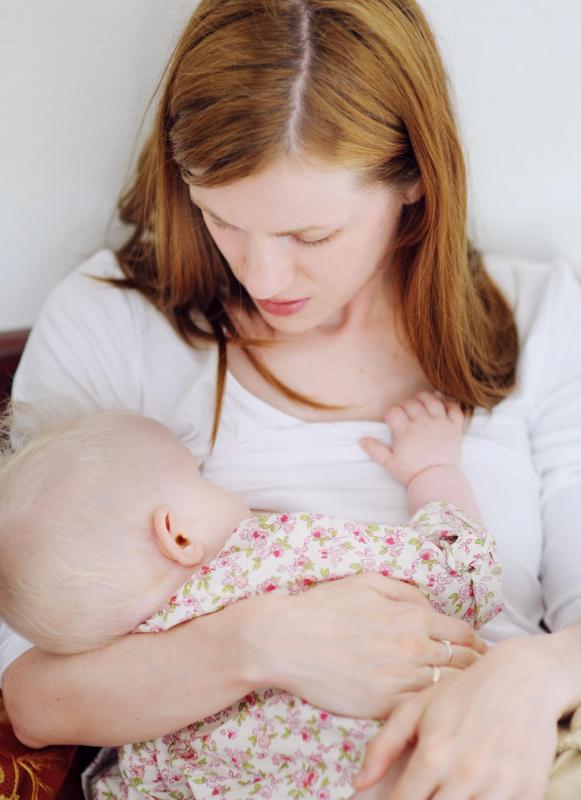At WiseGEEK, we're committed to delivering accurate, trustworthy information. Our expert-authored content is rigorously fact-checked and sourced from credible authorities. Discover how we uphold the highest standards in providing you with reliable knowledge.
How do I Determine the Best Breastfeeding Frequency?
Typically, breastfeeding frequency is determined by the needs of each individual baby. Breastfeeding frequency can be determined by a series of behaviors or cues. This is often referred to as breastfeeding on demand. In the alternative, it can be pre-determined by a set schedule. If the clock determines breastfeeding frequency, it is often referred to as feeding on schedule. The baby’s age and medical issues may play a role in determining the feeding frequency as well.
If a mother chooses to feed her infant on demand, it means that the mother will pay close attention to cues that the baby gives. Based on those cues, the mother will feed her infant. Cues can include bringing a clenched hand to the mouth or sucking on the fingers. In addition, a baby may begin to turn her head in search of her mother’s breast when she is hungry. Sometimes the baby will make grunting noises as well.

Other mothers choose to have a pre-set schedule determining breastfeeding frequency. When the baby is very young, she may begin the breastfeeding procedure every three hours or so. In general, the clock starts when the baby begins to eat. So, if she starts to eat at 12:00, she would eat again at 3:00, if she were on a schedule allowing her to eat every three hours. As the baby becomes older, she may eat less frequently.

In some cases, a mother will do both: listen to the baby’s cues and feed according to the clock. For example, when a baby first comes home, she may be very tired. As a result, the mother may need to wake her baby up to feed her every few hours. When the baby is not being woken up, the mother can listen to the baby’s cues to determine breastfeeding frequency. As the baby becomes older, the need to wake her up becomes less essential, unless a pediatrician recommends it.
Anyone with questions regarding breastfeeding frequency can ask a lactation consultant or a pediatrician. Generally, these individuals are knowledgeable about the trends and latest breastfeeding research. For example, some research points to the fact that mothers who feed their infants based on the baby’s cues lower the likelihood that the baby will be obese later in life. In the alternative, some believe that a schedule is the most efficient way to feed and raise a baby. The ultimate decision is typically left to the mother.
AS FEATURED ON:
AS FEATURED ON:












Discuss this Article
Post your comments